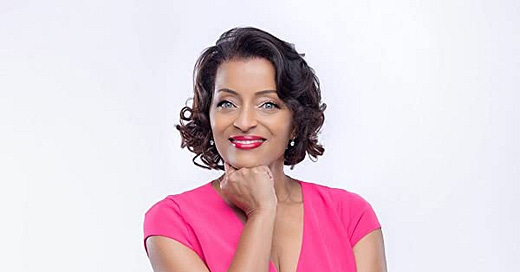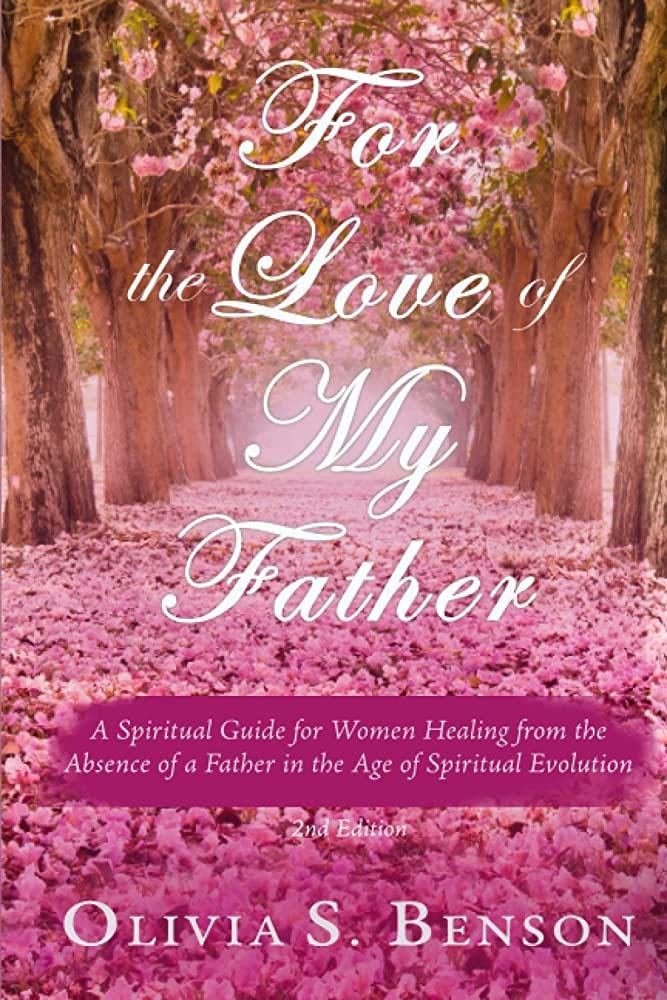“If we actually sat with our absent fathers and heard their life experiences, we might be surprised not only by their experiences but also that they survived them. Perhaps when we finish understanding their pain, we might have so much compassion for them that we might be able to love them, even if from afar and in spite of them.”
Olivia S. Benson
By Diamond-Michael Scott
Many have told me that I am among the lucky ones in having had a solid relationship with my father. He was my best friend; my confidant; a constant source of wisdom during the early formative years of my life.
Sadly, he passed away in 1996, the victim of a heart attack while on a retirement trip to London, England. His legacy influence remains a constant in my life.
As a child, my friend Olivia S. Benson was not so lucky. She was puzzled by her relationship with her father and his absence in her life. It took many years and much soul searching for her to understand her life experiences and how profoundly she was impacted by his absence.
With deep thoughtfulness, she shares wisdom about her journey in For the Love of My Father: A Spiritual Guide for Women Healing from the Absence of a Father in the Age of Spiritual Evolution, a book which explores the epidemic of fatherlessness in America and the issues and trauma associated with it.
Olivia takes her readers into the inner recesses of her sobering childhood that led to a perfect storm of circumstances, resulting in gaping holes in her Soul. She offers keys to her healing, discussing how important it is for women in particular to heal themselves so that they can reach their highest potential in the world. It’s here where she offers hope, allowing readers to see that despite how difficult it can often be to grow up without a father, they can be made whole.
When asked why she wrote this book, she offered this:
“I wanted all the little girls like me and even those women with that little girl inside to have something that they could experience from someone who’s not writing as a psychologist or as a mental health professional or any other kind of professional. Somebody who is writing from what I call an “in my bones and behind the eyeballs” experience. Having personally walked and lived this, what I hope to convey to readers is that while your daddy may not have been present, he loves you. He just can’t be present with you right now due to what he may have experienced in his own upbringing and circumstances.”
In her book, Olivia emphasizes that, for all practical purposes, an absent dad isn’t a bad dad, despite the fact that your mom having spoken badly about him. She adds:
“Your mom is going to speak badly of him from morning until night, saying every negative thing that she can about him. And the child is going to listen to this and internalize it in a very negative way. That’s doing significant damage to them.”
Olivia says that the book, while primarily directed towards women, is relevant for men as well in their quest to support women who are on a healing journey around overcoming the absence of a father. Moreover, it also offers hope to absent fathers by delivering insight and perspectives on the impact their absence is likely having on their daughter’s life.
She adds:
“The book is not about finding fault or placing blame. It is, however, about responsibility, because if we can take responsibility for ourselves, we can take control of ourselves.”
Olivia says that the idea for the book surfaced a few years ago, only after she had done her own necessary personal work to become whole. She sees the book as a way of sharing her story with the millions of girls and women suffering from the impact of feeling unloved by their absent father. The good news, she says, is that daddy issues are not irreparable.
“Part of a larger aim to heal whatever issues ail us so we can be whole and fulfill our purpose in life. The world needs as many whole humans as possible and as soon as possible to accomplish what is necessary to move us all forward.”
A Note From Diamond-Michael Scott:
“Great Books, Great Minds” is my full-time work and life passion, a labor of love fueled by the endless hours of work I put into researching and writing these feature pieces. So if you enjoy this digital newsletter, find it valuable, and savor world-class book experiences featuring epic authors and book evangelists, then please consider becoming a paid supporting member at $6.00 a month or $60.00/year.







Good afternoon, Ms. Hardy. It is important to me to be able to respect different points of views. For anyone reading your comments, I'd like to make some factual clarifications. I have no affiliation with the governor of Florida or his policies. I am not a divorce attorney. I was a divorced single mom. Generally speaking, there are exceptions to everything in life, and I make significant efforts in the book to make that clear. Some of the quotes you reference in your comment are taken from an interview and must be reviewed in context to get the meaning intended. In that interview, I speak about my experiences and what my mother did. As Mr. Scott suggested you might get a fuller perspective by reading the book since there is nothing in it, or in the interview I mentioned that shames or blames women. Quite the contrary, it places responsibility on the absent fathers for their failures and addresses how women can heal from this very difficult life challenge by seeing life through a Spiritual lens.